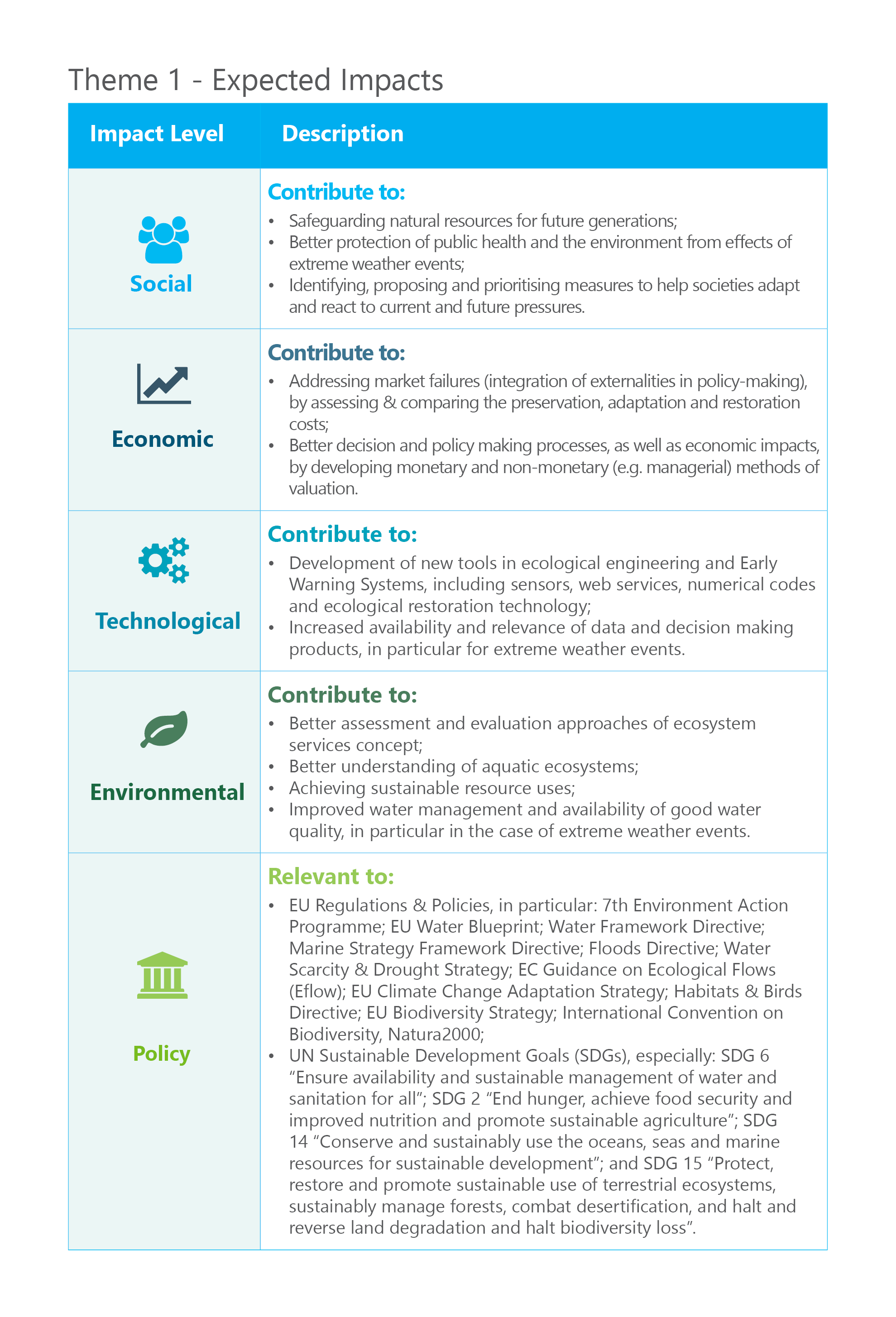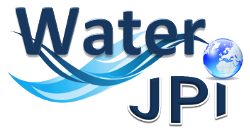Improving Ecosystem Sustainability and Human Well-being

The overall goal is to maintain the essential functions, processes and services of water bodies and associated ecosystems over the long-term through integrated and interdisciplinary RDI actions.
The key to sustainable development is to achieve a balance between the exploitation of natural resources for socio-economic development and conserving ecosystem services (benefits people obtain fromecosystems). Further water managementefforts and RDI actions are currently needed to ensure the protection and/or restoration of water bodies and ecosystems whilst meeting the socio-economic, political and cultural needs of current and future generations.
Research on ecosystem sustainability will also support a relatively wide range of national, European and international policy initiatives including: the 7th Environment Action Programme (EAP); EU Biodiversity Strategy; the Water Framework; Habitats and Flood Directives; and the UN Sustainable Development Goals (SDGs).
It is expected that a better understanding of the role of biodiversity in the strength and sustainability of aquatic ecosystems will be realised. From an operational point of view, functional indicators are to be developed to better understand the condition and ecological dynamics, and to act in terms of conservation and rehabilitation. As such, innovative applications of ecological engineering (design of ecosystems for the mutual benefit of humans and nature) can help restore water resources, biodiversity and aquatic environments (wetland restoration or hydromorphological [physical characteristics of the shape, boundaries and content of a water body] sediment management, restoration of ecological continuity, reintroducing key species).
Theme 1 is composed of:
- Subtheme 1.1. Developing Approaches for Assessing and Optimising the Value of Ecosystem Services;
- Subtheme 1.2. Developing and Applying Ecological Engineering and Ecohydrology;
- Subtheme 1.3. Managing the Effects of Hydro-climatic Extreme Events.
To view the full description of Theme 1, please consult the Water JPI SRIA 2.0.
The following activities are envisaged for the period 2017-2019:
- Exploratory Workshop (Dublin, Ireland on 02-03 November 2017)
- Thematic Annual Programming action (in 2018/2019) on the Subtheme 1.1: Developing Approaches for Assessing and Optimising the Value of Ecosystem Services. More details on participating countries will
- Water JPI Joint Call (tentatively planned for 2019) on the proposed topics of 1.1.1, 1.2.3 and 1.2.4.
- Strategy Activities to develop a common vision between the Water JPI and the other relevant initiatives in that specific area.
Synergies with other initiatives and opportunities for possible strategic and co-funding activities will be explored. These would include, for example:
- BiodivERsA: “a network of national and regional funding organisations promoting pan-European research on biodiversity and ecosystem services, offering innovative opportunities for the conservation and sustainable management of biodiversity.
- The FACCE JPI: “the Joint Programming Initiative on Agriculture, Food Security and Climate Change” brings together 22 countries that are committed to building an integrated European Research Area addressing the interconnected challenges of sustainable agriculture, food security and impacts of climate change.
- Climate JPI: “a Joint Programming Initiative ‘Connecting Climate Knowledge for Europe’ is a pan-European intergovernmental initiative gathering European countries to jointly coordinate climate research and fund new transnational research initiatives that provides useful climate knowledge and services for post-COP21 Climate Action.”
Updating the Water JPI SRIA
The SRIA is a living document, which will be kept updated. Emerging research needs and new knowledge gaps can be submitted for inclusion in the SRIA, following review by the Advisory Boards and approval by the Governing Board.
To submit your proposed addition to the SRIA, please complete the Online Template available here

